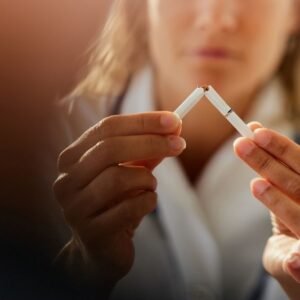If you enter residential recovery treatment in Cameron, South Carolina with us, you or your loved ones might have questions about how your cocaine abuse affects your brain and neurological functioning. The most important point to remember is that your brain can heal and improve with time. While it won’t be an overnight process, you can bounce back. So don’t despair, stay strong, and keep reading!
Cocaine on The Brain: The Three Takeaways
When your brain forms an addictive attachment to cocaine, it essentially gets sick. Just like heart disease can wreak havoc on your heart that can later be seen in scans, the damage your brain sustains from cocaine addiction is visible in brain scans. Healthy areas of the brain show up in bright reds and yellows, while areas affected by substance use often appear in blues and purples, for example.
When you use cocaine and other substances, the decision-making part of your brain—the prefrontal cortex—takes a big hit.
Imagine your brain is the CEO of a large company. If the CEO gets confused, inaccurate information from employees, they will not be able to make the best choices and may even choose a path that jeopardizes the business. When your brain is being controlled by a substance like cocaine, it becomes very hard to make good choices, even if you genuinely want to.
The Great Dopamine Trick
Eating your favorite dessert, winning a video game, or getting a hug from someone you love: these are all sources of dopamine release—the feel-good chemical that trains our brains to pursue what we love. It’s like your brain’s way of saying “Hey, that was great! Let’s remember to do that again!”
Cocaine causes an intense rush of dopamine, substantially more than you’d get from natural pleasures like good food or a cuddle. It’s like turning up the volume on your brain’s reward system to maximum level.
Over time, your brain gets overwhelmed by all this extra dopamine and tries to adapt by becoming less sensitive to it. This is what people in the recovery space may refer to as tolerance. It’s like turning down the volume because the music is too loud.
The problem is, this affects everything. Because cocaine is so powerful, the brain no longer takes pleasure from simple things like being around others and enjoying healthy activities. Wholesome, natural fun loses its impact, making it less and less attractive to your brain.
With sustained cocaine abuse, you’ll start to feel like you need more of the drug while you begin to like it less and less. This indicates that the brain has rewired itself to believe the substance will bring you to a baseline normal; soon, you’ll feel like you need more and more cocaine just to feel normal.
The Best Activities For Retraining The Cocaine-Affected Brain
The most effective activities for treating a cocaine disorder require a team effort:
- Group therapy (learning from others in similar situations)
- One-on-one counseling (focused on your personal journey) and cognitive behavioral therapy (CBT)
- Family therapy (helping loved ones understand and support you)
We can support you with these activities when you enter our residential or intensive outpatient programs in Cameron or North Charleston. We also help you build a great support system and receive ongoing reinforcement even after treatment ends. Visit our website or contact us today for more information!





